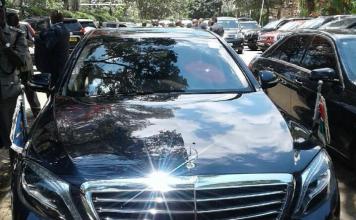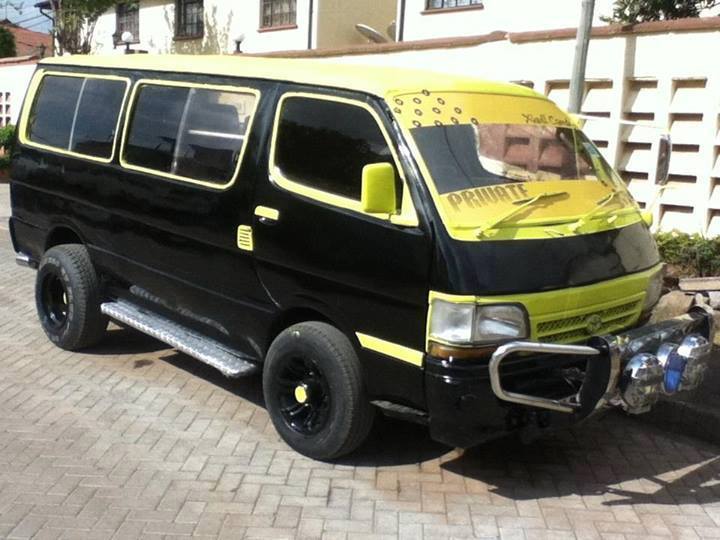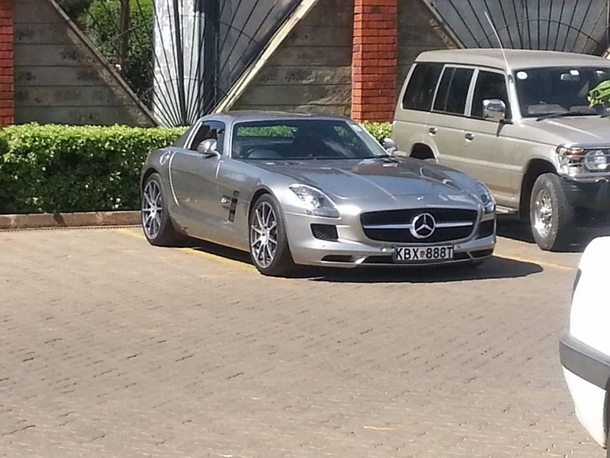A Kenyan company that took up the audacious task of producing low-cost vehicles for Africa’s off-road and rough terrain plans to increase production of a newer, more advanced model next year after an optimistic reception of its pioneer model.
Since the inaugural model Mobius II rolled off the assembly line in late 2014, 50 units were sold by the end of 2015 with Mobius Motors now planning to significantly ramp up production of a more advanced model next year. It anticipates the new Mobius II, which will be a more enhanced version of its pioneer model, will have advanced features such as a better interior and exterior appearance, power steering, sealed side windows and a much higher ground clearance. The expectation is that the enhanced model will gain an even better reception in the East African market.
The idea behind Mobius Motors, the company Joel Jackson, a British entrepreneur established in 2009, was to design and produce hardy, low-cost vehicles fit for many of rural Africa’s off-road locations and pothole-riddled roads. Jackson had worked in the rural areas where he gained first-hand experience of the challenges in mobility especially for entrepreneurs in the remote locations.
Many such entrepreneurs often have had to contend with high purchase prices of imported vehicles, many of which are not designed for the particularly uneven tracks in remote areas. The cost of new models is invariably out of reach of many. Jackson saw this opportunity, which has already started bearing fruit with growing orders from entrepreneurs for the Mobius, which some have come to regard as Africa’s Land Rover.
Jackson, the company’s CEO announced in October Mobius had started accepting pre-orders for the new Mobius II. The simplistic design and absence of key features such as power steering, air conditioning and glass windows in the original Mobius was compensated by the relatively low price of 950,000 Kenya shillings (approximately $9,500).
“The price is similar to a seven-year old sedan vehicle, which is not designed to operate on degraded terrain reliably, nor carry the heavier loads common among consumers in these areas,” the company says.
The vehicle has a loading capacity of 625 kg and a top speed of 120 km per hour. The company has already accepting pre-orders for the new Mobius II, with deposits of 50,000 Kenya shillings ($500) for each unit against a total vehicle price of 950,000 Kenya shillings.
In a race to create an identity for themselves as automakers, African nations are rising in this respect. Students at Uganda’s Makerere University developed a first home-grown a five-seater hybrid sedan dubbed Kiira EV Smack. Kiira Motors went ahead to develop a solar-powered bus which its Ugandan makers described as Africa’s first. Kiira Motors expects the first commercial production to begin in 2018 though its ambitions to be solar-based have been set back. A Ghanaian-based automaker owned by Apostle Safo Kantanka assembles ‘made in Ghana’vehicles for the African market.
Kenya’s early attempt at mass production of homemade low-cost cars primarily targeted at the ordinary citizen began in 1986. The then president Daniel Moi asked University of Nairobi students to design a car “however ugly and slow it may be”. This led to the birth of Nyayo Pioneer, which was to be arguably Africa’s first independently developed car. After five years of hard work, cars were ready to hit the road in 1991. But, during the launch one afternoon at the 60,000-seater capacity Kasarani Stadium, the test car broke down and could not even complete a journey around an athletic track.
Since its launch, Mobius has attracted attention from local and international investors. In May 2014, the car maker attracted an undisclosed amount of money convertible debt (pdf) from US billionaire Ronald Lauder through his Pan-African Investment Company (PIC) to help it complete the initial production of 50 units and establish a distribution base in Kenya. In November 2014, Kenyan-based Chandaria Industries acquired an undisclosed stake in the low-cost motor maker.
Sign up for the Quartz Africa Weekly Brief — the most important and interesting news from across the continent, in your inbox.





![[PHOTOS] Top 20 Used Cars to Avoid Buying in Kenya](../../../blog/wp-content/uploads/2013/11/top-used-unreliable-cars-to-avoid2-80x60.jpg)
![Here are some of the best tuned cars in kenya by state of the art garages [PHOTOS]](../../../blog/wp-content/uploads/2013/11/29402_10151301757042065_340470732_n-e1384498044289.jpg)


![[PHOTOS] Top 20 Used Cars to Avoid Buying in Kenya](../../../blog/wp-content/uploads/2013/11/top-used-unreliable-cars-to-avoid2-100x70.jpg)


